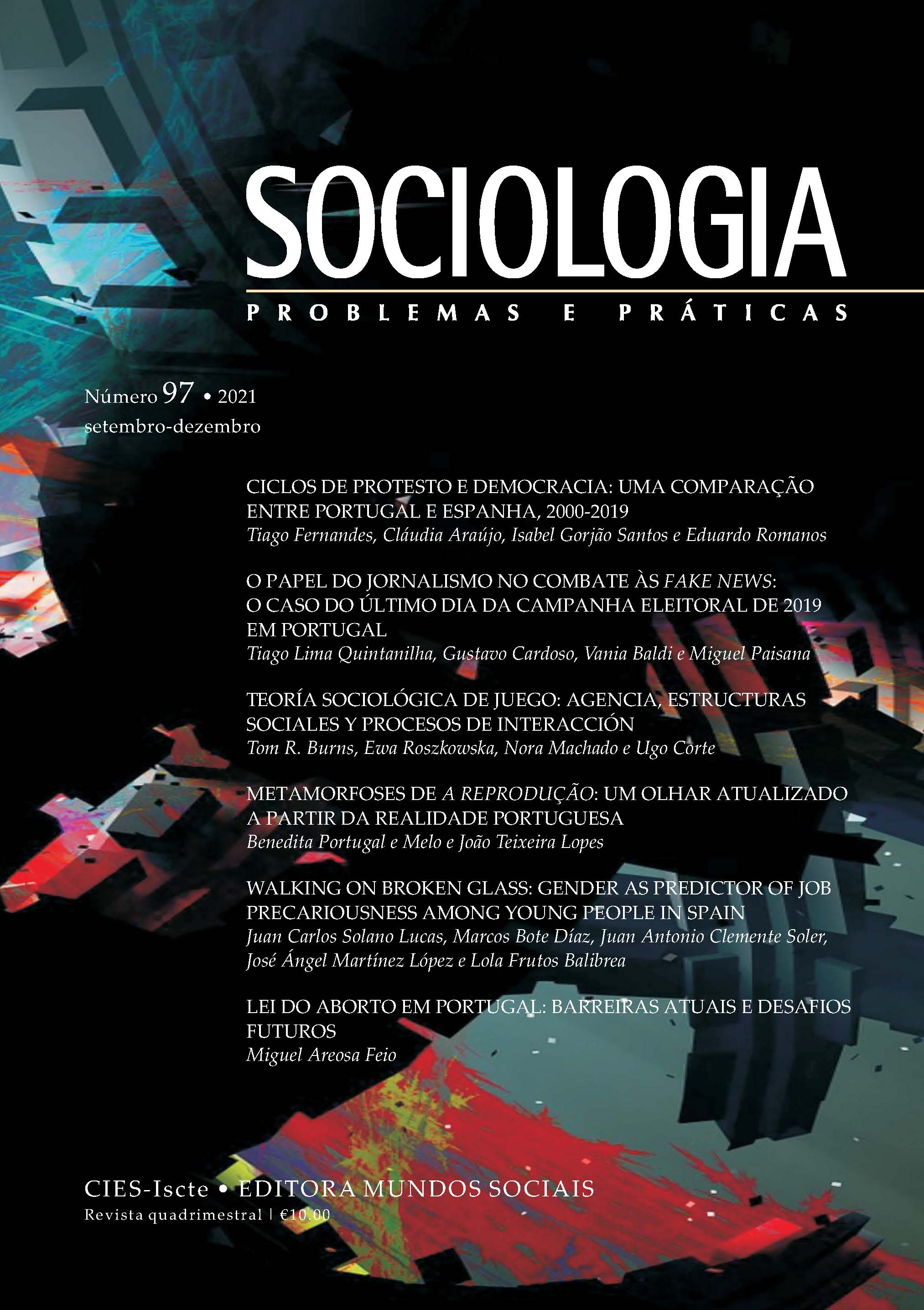Sociological game theory: agency, social structures and interaction processes
DOI:
https://doi.org/10.7458/SPP20219724910Keywords:
classical game theory, sociological game theory, agency, interaction, social rulesAbstract
This article presents two sociological theories, alternatives to classical game theory. These social science-based game theories discussed here present reformulations of classical game theory in applied mathematics (CGT). These theories offer an important advance to classical game theory, thanks to the application of central concepts in sociology and social psychology, as well as the results of empirical analyses of individual and collective behaviour. These two theories emerging in the social sciences are, the first, based on systems theory, is social science game theory (SGT); the other is Erwing Goffman’s interactionist theory (IGT) based on social psychology. Each of these theories, both focused on the analysis of social games, are presented and contrasted with classical game theory, highlighting the centrality of social rules in structuring and regulating human behaviour, and the need to include them in any analysis.
Downloads
Published
Issue
Section
License
Authors who publish in this Journal must agree the following terms and conditions:
- Authors retain copyright and grant the Journal the right to first publication, while simultaneously agreeing to a Creative Commons Attribution License, which allows others to share their work on condition that they cite the original author(s) and recognise that the latter’s work was first published in this Journal.
- Authors are authorised to enter into additional contracts separately, for non-exclusive distribution of the version of the work that is published in this Journal (e.g. publication in an institutional repository or as a book chapter), subject to recognition of initial publication in this Journal.



